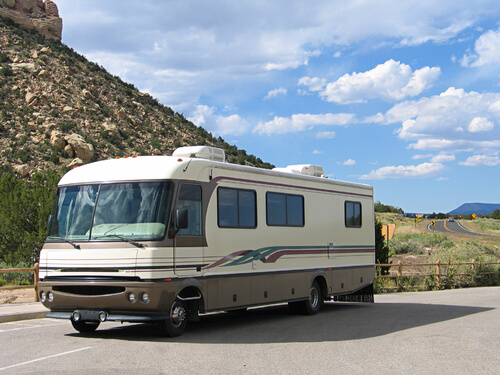
Langdon & Emison, a person injury law firm with offices in Missouri and Illinois, recently authored an article, “RVs – Rolling Time Bombs on U.S. Roadways,” highlighting the design and manufacturing defects many recreational vehicles contain. The article appeared in the June 23, 2016, newsletter of the Association for Women Lawyers of Greater Kansas City (AWL).
RVs comprise a large segment of what are known as incomplete, aftermarket or modified vehicles because they are manufactured in stages, often in factories by different manufacturers.
According to the article, some RV factories employ factory workers at very low hourly rates, but provide production bonuses based on how many RVs the workers can produce each week. This model often results in quantity over quality and safety.
“RV manufacturers do very little testing,” the article states. “As a result, while RVs look great on the outside, they often have hidden defects that may not be apparent for months or years after the manufacture date.”
Identifying RV Defects
Product defects in RVs may stem from the incomplete vehicle manufacturer (which supplies the chassis); the final stage manufacturer (which transforms the chassis into a finished vehicle); or a manufacturer involved elsewhere in the process.
In its practice, Langdon & Emison has identified a range of RV defects in cases involving structural and crashworthiness issues such as inadequate restraint systems and vehicle stability, the article says. Several recent cases have highlighted extremely dangerous fuel system defects that make post-collision fires an imminent danger and put unsuspecting travelers at risk of burning to death.
In some RVs, the fuel system defect pertains to the location of the fuel lines, which are routed without protection through the driver compartment. According to the article, some RVs are designed and manufactured with the fuel lines located very close to the occupants and within the crush zone of the vehicle, creating a serious risk of post-collision fire.
Case Example
The article details a case involving a woman who was killed in an RV propane explosion due to a kinked or crimped propane line and small hole that permitted gas to escape into the RV. After inspecting the manufacturing plant and deposing several employees, the firm’s attorneys learned there were no blueprints for workers to follow when assembling the final stage RV, and the quality of work went uninspected and untested.
In a non-collision situation or in a survivable collision on the roadway, RVs should not catch fire or present a risk of fire or explosion, the article says.
More than 9 million U.S. households owned RVs in 2015 and sales continue to surge. With the increasing use of these vehicles, litigation over design and manufacturing defects also will continue to increase, the firm says.
Contact Langdon & Emison
For more than 30 years, Langdon & Emison has litigated cases involving defective RVs and other consumer products. If you have been injured or lost a loved one in an RV crash, or if you are evaluating a case involving potential RV defects, contact our lawyers at 866-931-2115 or by email. We will be pleased to review your case at no cost or obligation to you or help in any way we can.

